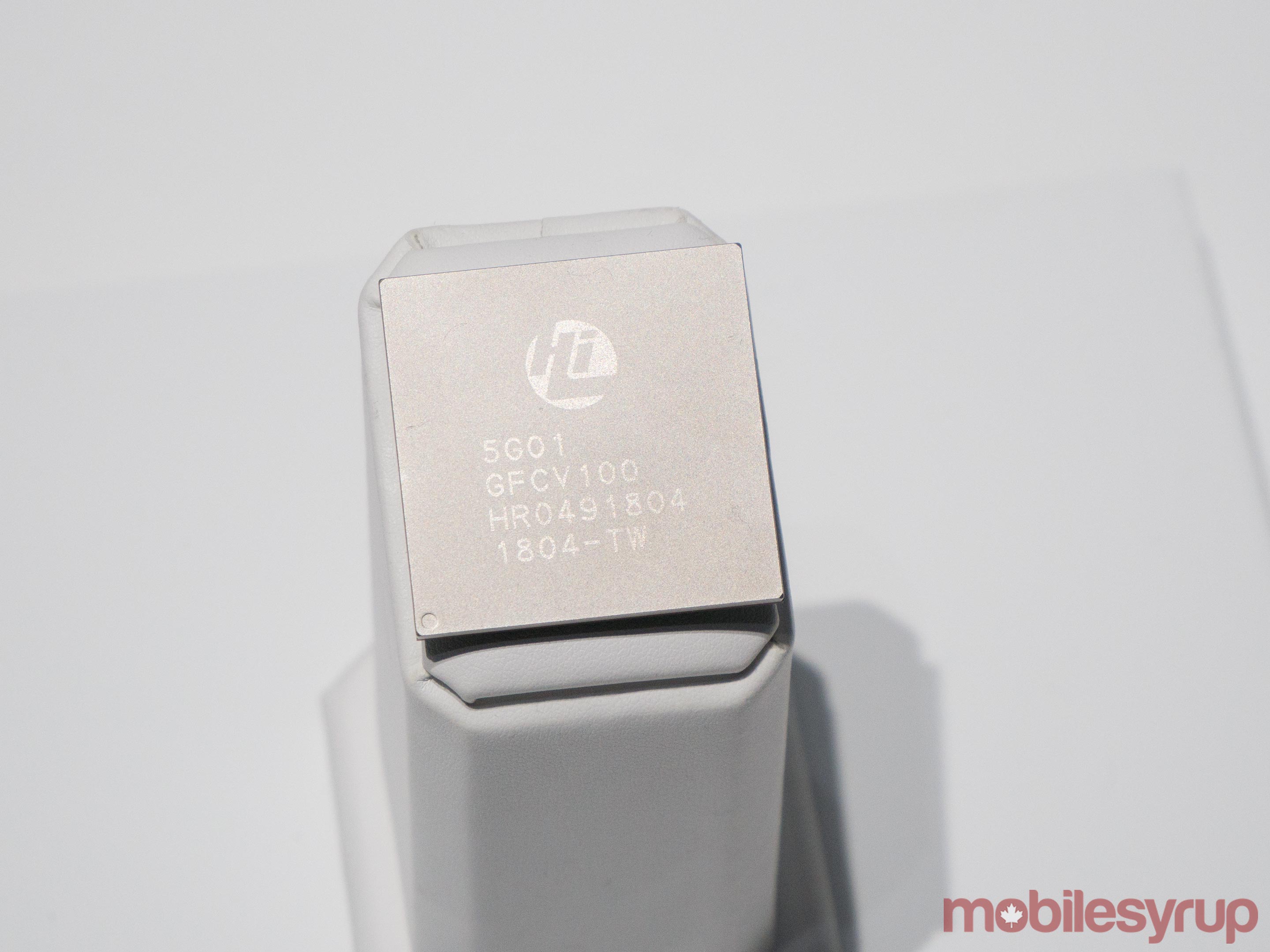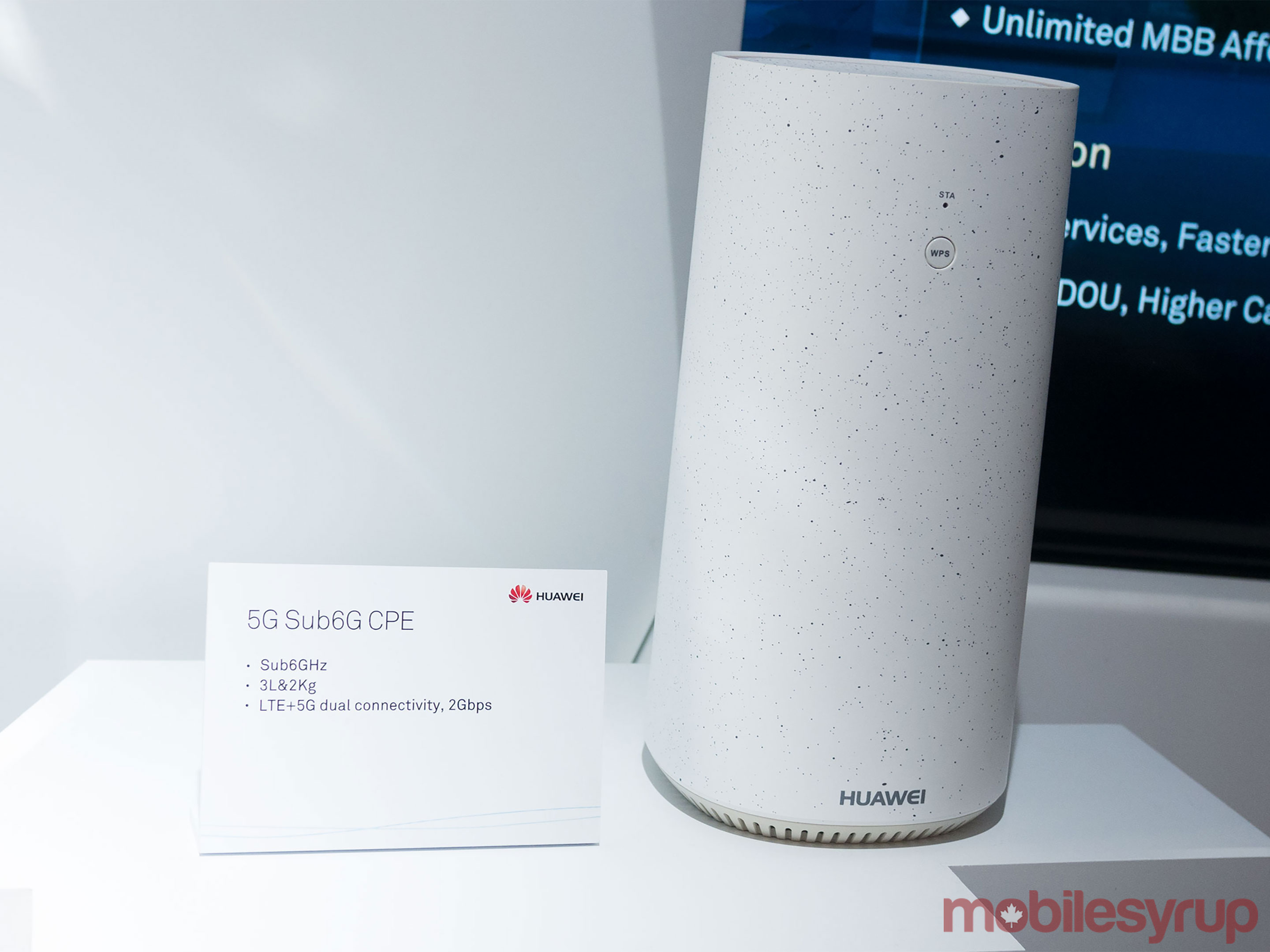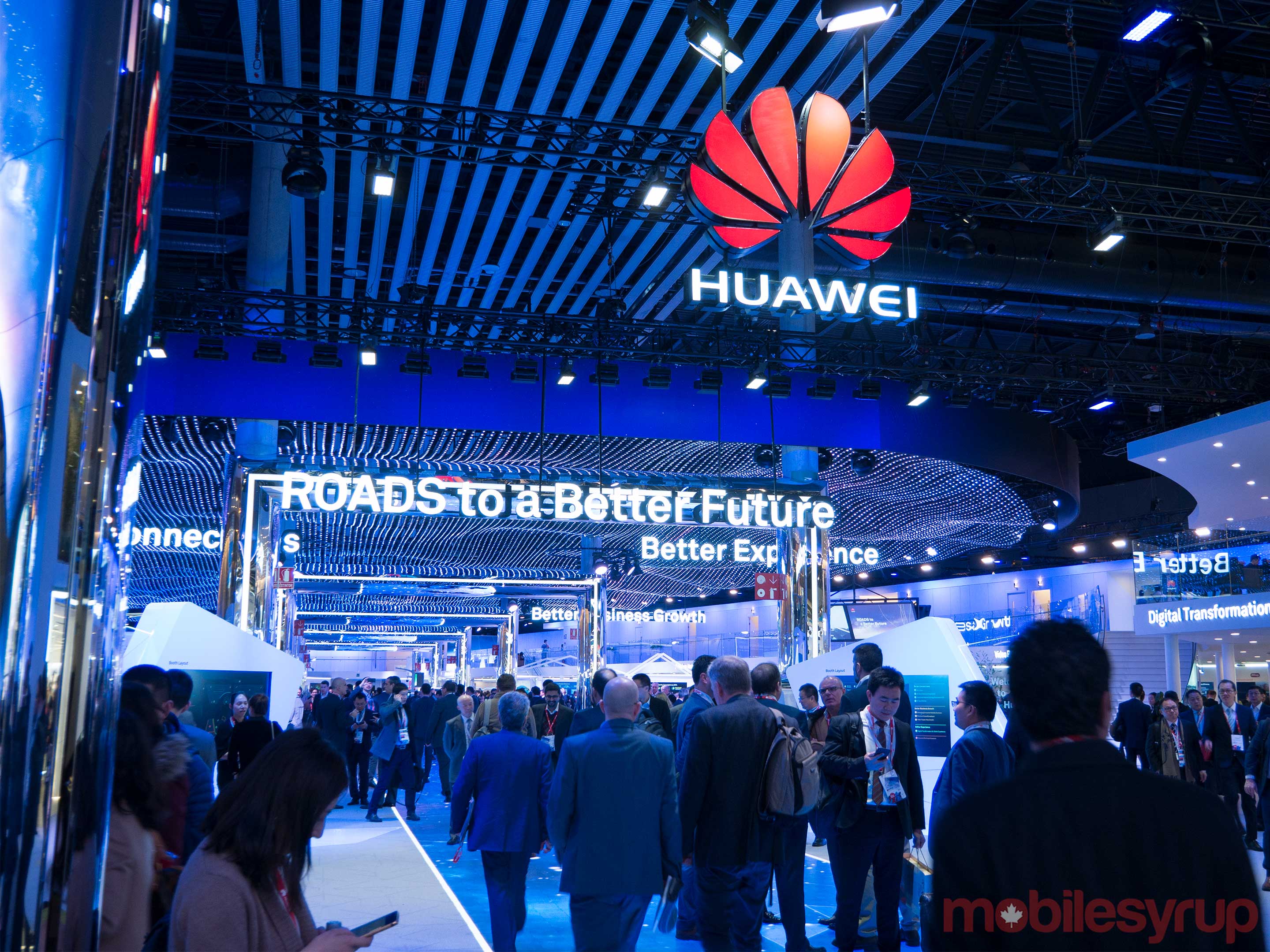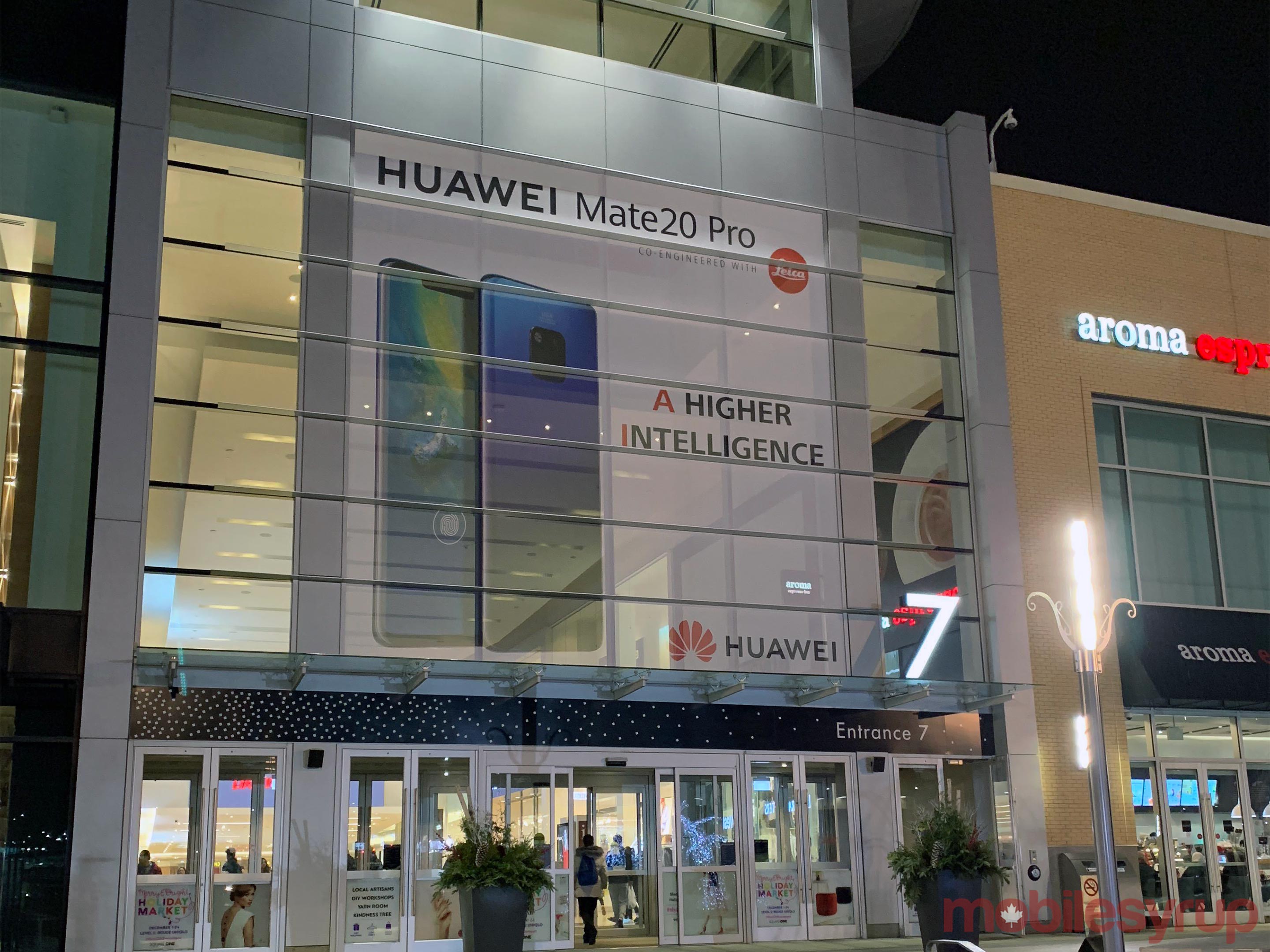Huawei Canada executive says banning company wouldn’t address 5G security concerns

After weeks of turmoil in which Huawei has been positioned as a threat to Canada’s national security, one of the company’s top Canadian executives says the easiest course of action for the federal government is to ban the company outright, but argues that would throw away 10 years of work and a relationship that hasn’t experienced problems.
On December 18th, 2018, Scott Bradley, vice president of corporate affairs at Huawei Canada, discussed Huawei’s relationship with carriers and Canadian regulatory agencies for the first time since Meng Wanzhou, the company’s global chief financial officer, was arrested in Vancouver, making headlines not only in Canada but across the globe.
Bradley candidly spoke with MobileSyrup about the relationship Huawei Canada has had with the country over the past 10 years, emphasizing years of work would be thrown away if the government decides to ban the Shenzhen, China-based telecommunications and smartphone giant from involvement in the network infrastructure plans of Canada’s carriers. He added that a ban would ultimately hinder Canada’s technological advancement in the space, resulting in it falling behind other countries.
“There hasn’t been a problem with Huawei for 10 years … but it goes back to the broader and legitimate issues that are raised on how do we protect Canada from a data perspective, from a disruption perspective. How do we have those protections in place?” said Bradley.

“By banning Huawei are you worried about China’s emerging technology leadership? That’s a legitimate issue — perhaps you are. So how do you deal with that? Are you worried about how China will use technology for other purposes or around the world? … That’s again a legitimate issue regarding why you should be understanding what China is up to. But by banning Huawei do you address those issues?”
The recent controversy involving Huawei Canada erupted after Meng was arrested for allegedly violating U.S. trade sanctions against Iran. Meng was arrested in Vancouver on December 1st, 2018 and was granted bail, but currently faces extradition at the request of U.S. law enforcement.
The arrest came after New Zealand announced the ban of carriers in its jurisdiction from using Huawei equipment to build out the country’s 5G infrastructure. This move followed similar decisions from fellow Five Eyes members Australia and the U.S.
The Five Eyes intelligence-sharing alliance is a group of nations that share information and intelligence with regards to terrorism, security and espionage. It consists of the United States, the United Kingdom, Canada, Australia and New Zealand.
5G is considered the next iteration of mobile connectivity and the successor to 4G Long-Term Evolution (LTE). Although the technology’s exact purpose remains a constantly evolving question, it has a variety of theoretical objectives, including significantly faster smartphone data connectivity, autonomous vehicles, smart home devices and, particularly in a Canadian context, improved rural fixed internet connections.
The three countries banned the telecommunications giant from supplying 5G networking equipment out of fear of a national security breach. According to a draft of China’s national intelligence law that was recently released, all Chinese companies “shall support, cooperate with and collaborate in national intelligence work, and maintain the secrecy of national intelligence work they are aware of.”

Bradley said Canada doesn’t build its security systems based on Chinese laws or the laws of any other country.
“That’s not how Canada builds its networks. These issues are all being considered but it’s not just about China or Russia or any individual state. It’s about how do you ensure Canadian data can’t be collected in a mass way — that Canada’s networks can be shut down or compromised,” Bradley said.
“Fundamental to this is understanding that the basic principles of why you have the CSE [Communications Security Establishment], and why you have operators and why they build networks to protect Canadian interests …”
Huawei Canada has constant ‘formal and informal’ talks with CSE
The CSE is Canada’s national cryptologic agency. It is administered through the national defence minister. The agency is responsible for foreign signals intelligence and protecting the Canadian government’s electronic information and communications networks.
The agency’s IT security program, the Centre for Cyber Security, helps protect sensitive information and is currently headed by Scott Jones.
In September, the CSE publicly announced it was testing Huawei’s equipment in Canada. According to the CSE’s website, a government review of 5G technology is currently underway.
Public Safety Minister Ralph Goodale has also said to the media that any reports of banning Huawei technology are purely speculation.
MobileSyrup reached out to CSE for an interview but was declined the request.
Bradley said he was “not in a position to discuss” if CSE had been in communication with Huawei Canada about security concerns but said that the company and agency are “always in touch.”

It is important to note that on December 20th, 2018, the CSE announced that it sided with Canada’s allies and identified China as being responsible for compromising the country’s cyber-security.
A notice on its website stated that it found Managed Service Providers’ security was compromised as early as 2016 and that it is “almost certain that actors” involved are from China. It did not specify any Chinese companies engaged in compromising Canada’s cyber-security.
Bradley declined to provide details regarding the specifics of Huawei’s relationship with the CSE but stated it was high-level.
“How it works is they work with an independent third-party and provide access to our equipment that they have access to. They are able to do tests and checks. There is nothing that goes into the Canadian network that they don’t test,” Bradley said, adding that there are “a lot of talks” with the CSE.
He said conversations are both formal and informal, but the ultimate goal is to be 100 percent transparent.
“The goal is to have no surprises. We know that other agencies are out here talking to people and our goal is to make sure that we never ever [have a moment] where they talk to someone and find out something about us that we are doing in Canada before we haven’t told [CSE],” Bradley said.
Bradley says presence in Canada is open and transparent
A common misconception surrounding Huawei is that the company only entered the Canadian market within the last two to three years. The fact that Huawei has operated in the country with a relatively low profile until it began selling consumer smartphones in Canada, most recently the Mate 20, has likely added fuel to this perception.
The first major phone the company released in Canada was the Nova Plus in 2016, followed by the P10 in 2017 and the P20 in 2018.
Huawei advertisements can now be found on highway billboards, plastered on the walls of malls and even prominently on display during Hockey Night in Canada, of which the company is a title sponsor.
In reality, Huawei has had a presence in Canada since 2008, following the company winning a UMTS network infrastructure contract with Telus and Bell.

Since then, Bradley said that the company has a 10-year track record in Canada and as a result, an open dialogue with the CSE.
Bradley added that throughout this period, the Canadian government has been aware of what the company is working on.
“I think it’s important to recognize that we have worked openly and transparently with the government for a decade. As part of this we share all our information, much that is even commercially sensitive,” said Bradley.
Bradley went on to state that Huawei operates in 170 countries around the world and emphasized that there has never been a documented incident related to espionage.
He also emphasized that given Huawei’s open relationship with the CSE, there is no margin for error in this regard.
In 2016, the Canadian visa applications of two former Huawei employees were rejected on the basis of their association with the company and fears of espionage.
Further, Bradley said that through Huawei’s research partnerships with 13 Canadian universities, the tech giant has worked with over 1,000 students and 100 professors.

The company specifically forged 5G-related research partnerships with several notable Canadian universities, including Carleton University, the University of Waterloo and the University of British Columbia.
However, the Globe and Mail recently reported that the Canadian Security Intelligence Service (CSIS), Canada’s spy agency, has warned universities about their partnerships with the Chinese company.
During these meetings, CSIS reportedly “did not reveal classified information nor provide specific direction to universities.”
These meetings were reportedly set long before Meng’s arrest, according to the publication.
Bell, Telus work closely with Huawei Canada
Huawei is also heavily invested in helping Bell and Telus build out their 5G infrastructure, though it remains unclear exactly how far along these efforts are.
Last February, Huawei and Telus announced that they were jointly running 5G wireless-to-the-home trials, with Bell conducting 5G 28GHz mmWave and 3.5GHz tests with the company. Bell has previously worked with Nokia when it comes to 5G testing.
Rogers, on the other hand, is working with Ericsson on its multi-year 5G plan. Ericsson is a telecommunications equipment manufacturer based out of Sweden.

As recently as December 5th, 2018, CSIS director David Vigneault warned Canadians of state-sponsored espionage through 5G mobile networks, emphasizing Huawei’s infrastructure partnerships with Canadian carriers
The Globe and Mail also recently reported that removing equipment from next-generation 5G networks could cost Bell and Telus an estimated $1 billion CAD. One anonymous executive suggested banning Huawei could cost $500 million to $1 billion for Telus alone.
These costs would stem from the carrier being forced to remove and replace tens of thousands of Huawei manufactured antennas.
MobileSyrup reached out to Bell and Telus to inquire on their 5G infrastructure relationship with Huawei. Both carriers did not respond to interview requests.
The post Huawei Canada executive says banning company wouldn’t address 5G security concerns appeared first on MobileSyrup.
from MobileSyrup http://bit.ly/2GwmS8I
Labels: MobileSyrup
0 Comments:
Post a Comment
Subscribe to Post Comments [Atom]
<< Home